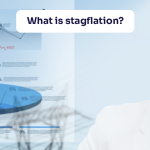"The only thing that gives me pleasure is to see my dividend coming in." --John D. Rockefeller, founder of the Standard Oil Company.
Dividend yield or the dividend-price ratio of a share is the company's total annual dividend payments divided by its market capitalization or the dividend per share divided by the price per share.
Dividend yield is used to calculate the earnings on investment considering only the returns in the form of total dividends declared by the company during the year. Dividend yield measures the amount of income received in proportion to the share price.
Dividends send a clear, powerful message about future prospects and performance of a company. A company's willingness and ability to pay steady dividends over time and its power to increase them provides good clues about its fundamentals.
Dividend yield is a way to measure how much cash flow you are getting for each rupee invested in an equity position. Investors who require a minimum stream of cash flow from their investment portfolio can secure this cash flow by investing in stocks paying relatively high, stable dividend yields.
Dividend payments on preferred shares are set out in the prospectus whereas there is no stipulated dividend for common stock. Dividends paid to holders of common stock are set by management, usually with regard to the company's earnings. There is no guarantee that future dividends will match past dividends or even be paid at all.
If a company has a low dividend yield compared to other companies in its sector, it can mean two things:
(1) share price is high because the market reckons the company has impressive prospects and isn't overly worried about the company's dividend payments.
(2) company is in trouble and cannot afford to pay reasonable dividends but at the same time, a high dividend yield can signal a sick company with a depressed share price.
Illustration: If two companies both pay annual dividends of Rs. 1 per share, but ABC company's stock is trading at Rs. 20 while XYZ company's stock is trading at Rs. 40, then ABC has a dividend yield of 5% while XYZ is only yielding 2.5%. Thus, assuming all other factors are equivalent, an investor looking to supplement his or her income would likely prefer ABC's stock over that of XYZ.
Source : Ventura Securities Ltd.
[contact-form][contact-field label='Name' type='name' required='1'/][contact-field label='Email' type='email' required='1'/][contact-field label='Website' type='url'/][contact-field label='Comment' type='textarea' required='1'/][/contact-form]
Disclaimer: Ventura Securities Ltd has taken due care and caution in compilation of data for its web blog. The information has been obtained from different sources which it considers reliable. However, Ventura Securities Ltd does not guarantee the accuracy, adequacy or completeness of any information and is not responsible for any errors or omissions or for the results obtained from the use of such information. Ventura Securities Ltd especially states that it has no financial liability whatsoever to any user on account of the use of information provided on its web blog. The information provided herein is just for the knowledge purpose and shouldn’t be construed as investment advice under any circumstances.

Your survival guide for the era of negative real interest rates
7 min Read Oct 21, 2020
The Dance of the Market Cap Segments
4 min Read Aug 27, 2019
When Easy Overseas Loans Become An Easy Debt Trap…
2 min Read Jan 12, 2019
2019 might be an exciting year for stock-pickers…
6 min Read Jan 1, 2019
How to overcome market phobia? Here’s your guide to DIY investing
6 min Read Dec 27, 2018
Revisiting the Gold-Silver Ratio Amid Silver's Outperformance
2 min Read Dec 22, 2025
Midcaps: Sweet Spot or Danger Zone? | What HSBC MF’s Cheenu Gupta Thinks | Ventura Spotlight
2 min Read Dec 17, 2025
Understanding Option Pin risk near expiry
2 min Read Dec 12, 2025
EPS in the Stock Market
2 min Read Dec 12, 2025
What is stagflation?
2 min Read Dec 10, 2025
Post your comment
You must be logged in to post a comment.